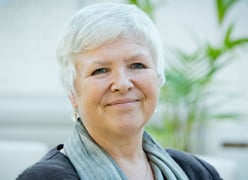Policy Bite: Universal Health Coverage
 español
español
Amanda Howe writes:
At present, the big discussion at the World Health Organization is about Universal Health Coverage (UHC) - but we also need to say what we expect this to mean in practice.
The dimensions of UHC need to consider:-
•
Who is covered – what percentage of the population, who has rights to coverage
•
How they are covered – by taxation payments, social benefit, insurances, or out of pocket expenses…
•
What is covered – nature and extent of the cover, including public health , lifestyle, and screening
•
Where they have to go to get it – local or other
•
Who is in place to deliver the care – is there a trained and suitably skilled workforce
•
What they have available to do the job – medicines, practical kit and materials, information technology
•
How it is governed and managed – gatekeeper / referrals, accountability, quality assurance
•
Why these choices are made – political, financial, commercial, ethical, and geographical aspects.
So our argument is that doctors whose skills are most appropriate to being part of the first line of care to integrate different aspects of care for UHC is family medicine. To be useful at the first line of contact in many health care systems, you must be a medical generalist, whose interpersonal skills and ability to make and keep a good relationship with patients over time will assist in both diagnosis and appropriate management.
The values of person-centredness are strongly emphasised in family medicine, and there is good evidence from Barbara Starfield’s work[1] that strong primary care is associated with better health outcomes at all levels and that health outcomes are better in areas with more primary care doctors. She also found that people with access to primary care are healthier than those without; universal access to primary care is associated with reduced inequalities in health outcomes: that a large quantity and high quality of primary care is associated with lower and better use of hospitals; and finally that embedding of primary care in a health care system associated with lower system costs.
So what can help?
Once a change in a health care system is agreed – for example the introduction of more trained family doctors – leadership both from professionals and politicians will be needed. Others will need to agree the change, and this will have to be planned across the system – medical schools, hospitals, other health workers will all need to understand the role of the new speciality. A new training programme will need to be implemented, and assessment agreed. Then there will need to be ongoing professional learning and quality assurance, as with any other service. Exactly how this works will depend on whether the speciality already exists, and if so in what numbers and where they are working. The new postgraduate choice will need to made visible (and desirable) to young doctors. Sometimes doctors can move from an existing career into a higher level of training, to complement those coming out of medical school.
As well as the training and workforce inputs, family doctors will be most useful if their services form part of the UHC package, and if there is some kind of registration system which links the primary care team and the population overtime. Commitment of system resources and avoidance of a ‘two tier system’, with similar status and rewards for working in community and hospital settings, will also be important in recruiting doctors and encouraging the patients to use their primary care team first.
So – to summarise – the key factors of a functioning health service are to have a patient focused service across all care needs, covering a geographical area so that community health needs and local links become practical. Standardized high quality care delivery through interprofessional teams, well led and coordinated, using shared records and a team approach, will deliver good outcomes for lower costs. Family doctors medicine need to be at the heart of this service.
The challenge for the world in 2018 is being set out by WHO as the need to achieve universal health coverage through a service that addresses both the rise in lifestyle risk factors and noncommunicable diseases. Many countries do not have a full family medicine service, but this is crucial to the best outcomes for patients. Persuading others of the importance of family doctors as part of these developments – so please help us to speak up for family medicine in the development of UHC, and make the best of this important opportunity!
Amanda Howe
WONCA President
1.Barbara Starfield, Leiyu Shi, and James Macinko. Contribution of Primary Care to Health Systems and Health. Milbank Q. 2005 September; 83(3): 457–502.